If you're wondering which mattress will suit you, our ultimate guide will help you decide which size, type, and firmness to buy
Choosing the right mattress for you is imperative if you want to sleep well, but the number of options can make it confusing – here's what you need to know to buy well


Design expertise in your inbox – from inspiring decorating ideas and beautiful celebrity homes to practical gardening advice and shopping round-ups.
You are now subscribed
Your newsletter sign-up was successful
Want to add more newsletters?

Twice a week
Homes&Gardens
The ultimate interior design resource from the world's leading experts - discover inspiring decorating ideas, color scheming know-how, garden inspiration and shopping expertise.

Once a week
In The Loop from Next In Design
Members of the Next in Design Circle will receive In the Loop, our weekly email filled with trade news, names to know and spotlight moments. Together we’re building a brighter design future.

Twice a week
Cucina
Whether you’re passionate about hosting exquisite dinners, experimenting with culinary trends, or perfecting your kitchen's design with timeless elegance and innovative functionality, this newsletter is here to inspire
Answering the question of which mattress suits me best brings benefits you shouldn’t miss out on. The right mattress promotes better sleep, with the numerous benefits to physical and mental health that sound, restorative rest brings.
Know-how is essential to selecting the best mattress. Firmness, type, size, costs, and where and when to buy to get the best deals in the mattress sales all factor into finding the option that suits you and your budget. Our complete guide will provide you with all the information you need.
Whether you’re buying a mattress for first time, or switching, to take advantage of the latest innovations, or to improve sleep quality, we’ll take you step-by-step through the decisions you need to make. And we’ll also share details on sleep trials, warranties, and mattress delivery, setup, and disposal.
Quick-start guide
Finding a mattress to suit involves decisions about all the below:
- Firmness selection should be dictated by whether you are a back, side, or front sleeper.
- Type typically refers to the major options: memory foam, gel, latex, innerspring, and hybrid. Hybrids combine innerspring and memory foam.
- Size most often means the standard mattress sizes twin, twin XL, full, queen, king, and California king.
- Budget is important since you might expect to pay from $1000 or less to $3000 or more, but there are good options available at the lower end of this range.
- Where/when to buy includes both specialist sleep stores and online retailers. It's also valuable to know when the sales are, so that you can get the mattress that suits you best for less.
The mattress you select can have a big impact on your life helping you rest better, especially when you know how to design a bedroom for better sleep. The right purchase can equally help with your particular problems or tendencies, often revealed as signs you’re sleeping on a bad mattress.
The mattress firmness scale explained below can help you answer questions such as which mattress should I buy for back pain. Meanwhile, if the problem is painful joints, understanding mattress firmness can help you choose a design that provides pressure relief and support that will help relieve aches and pains.
If you suffer from allergies, you might be wondering 'do I need a hypoallergenic mattress?', which can help to relieve allergy symptoms. And if you're a hot sleeper, you'll want to choose one of the best cooling mattresses that will help regulate temperature for a better night’s sleep.
Design expertise in your inbox – from inspiring decorating ideas and beautiful celebrity homes to practical gardening advice and shopping round-ups.
1. Select the ideal mattress firmness
Mattress firmness is how hard or soft a mattress feels when you lie on it. It's a direct indicator of the comfort and support you'll get from a mattress. Bear in mind that a firm mattress is not necessarily more supportive than a soft mattress. That's because firmness is linked to the comfort layers towards the top of the mattress, while support comes from the mattress core or base layer.
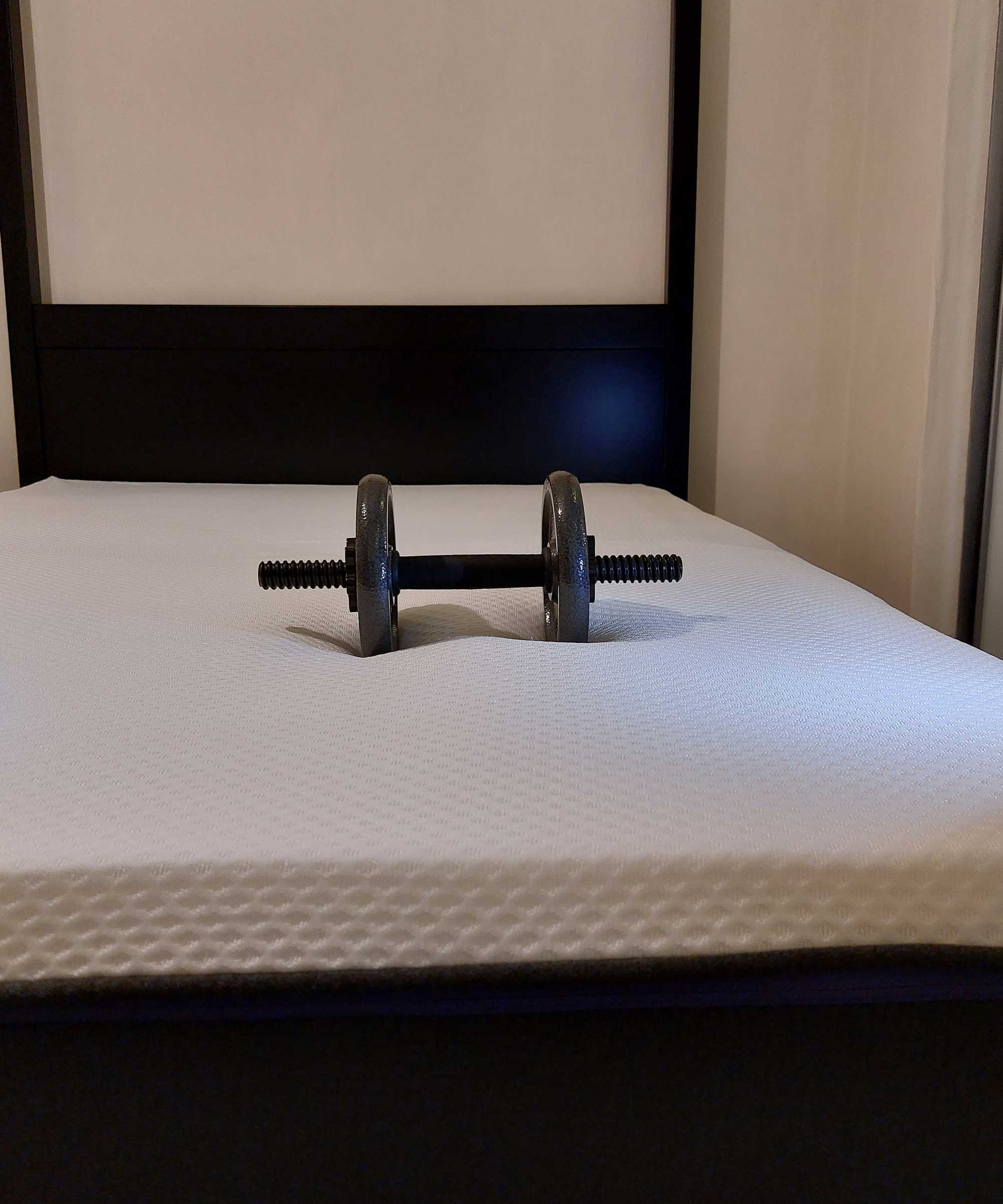
How do I know what firmness mattress I need?
The ideal mattress firmness varies between individuals, as each person has to find the balance between comfort and support to suit. The ideal should also by chosen according to your best sleep position, since whether you lie on your side, back, or stomach influences the support a mattress offers. Your weight also matters when selecting a mattress of suitable firmness.
Brands vary in the way they describe mattress firmness. Some mattress stores rate firmness on a numerical scale of 1 to 10, where 1 is super soft and 10 is ultra supportive. Others talk in terms of soft, medium, or firm mattresses. Below is what you can expect from each firmness level, and who each might suit.
What is a soft mattress
This is also the answer to the question 'what is a plush mattress?'. On a firmness scale of 1 to 10, a soft mattress would fall somewhere between 1 and 3. A soft mattress is made from contouring materials, such as foam, that closely conform to the shape of your body to create a hugging sensation.
The support a soft mattress offers depends on your sleep position, as well as your weight. Smaller, slighter side sleepers might appreciate the pressure-relieving properties of a soft mattress, but taller, broader sleepers will sink too far in, which will throw their spine out of alignment.
What is a medium mattress?
A medium mattress could encompass everything from medium-soft to medium-firm and, on a numerical firmness scale, a range from 4 to 6. This is the most popular mattress firmness rating and a great option for couples who share a bed. Most of the best places to buy a mattress stock medium-soft to medium-firm models.
The support of a medium mattress comes more from the core than from the uppermost comfort levels, so you don't get the same sinkage as you'd get from a soft mattress.
Sleep position can guide you to the best medium mattress. Dr. Kevin Lees from The Joint Chiropractic says that 'side sleepers tend to have more pressure on their shoulders and hips. The best mattresses for side sleepers are medium or medium-soft: still supportive, just with enough cushion to accommodate those areas. A side sleeper might also appreciate a firm mattress with a pillow top for pressure relief.' He adds, 'If you are a back sleeper, then you will likely get the best balance of support and cushioning from a medium-firm mattress.'
If you have back pain, many chiropractors recommend a medium-firm mattress as the top choice, since it can cradle your hips, knees, neck, and shoulders, while providing sufficient support to maintain the natural alignment of your spine.
What is a firm mattress?
A firm mattress would fall anywhere from 7 to 10 on the firmness scale. When you lie down on a firm mattress, you'll feel that you're on top of the surface, instead of sinking in and, if you appreciate enhanced support, you should consider the best firm mattress.
'If you are a stomach sleeper, then a firm mattress can provide the extra support needed to keep the spine in as neutral a position as possible,' says Dr. Kevin.
According to Theresa Schnorbach, a leading sleep scientist for Emma Sleep, 'Heavier individuals may benefit from a firmer mattress to provide extra support and prevent sinking. This should help to maintain proper spinal alignment and alleviate pressure points.'
Mattress type also influences firmness, and the details on each option are below.
2. Choose your mattress type
Your lifestyle, personal needs, and your preferences – such as wanting an eco-friendly mattress – all factor into the mattress type that will suit you individually. Meanwhile, each mattress type, whether that’s memory foam, gel, hybrid, latex, or innerspring, has pros and cons, and this is what you should know to pick the mattress that’s right for you. Here's a breakdown of the different types of mattress that are available:
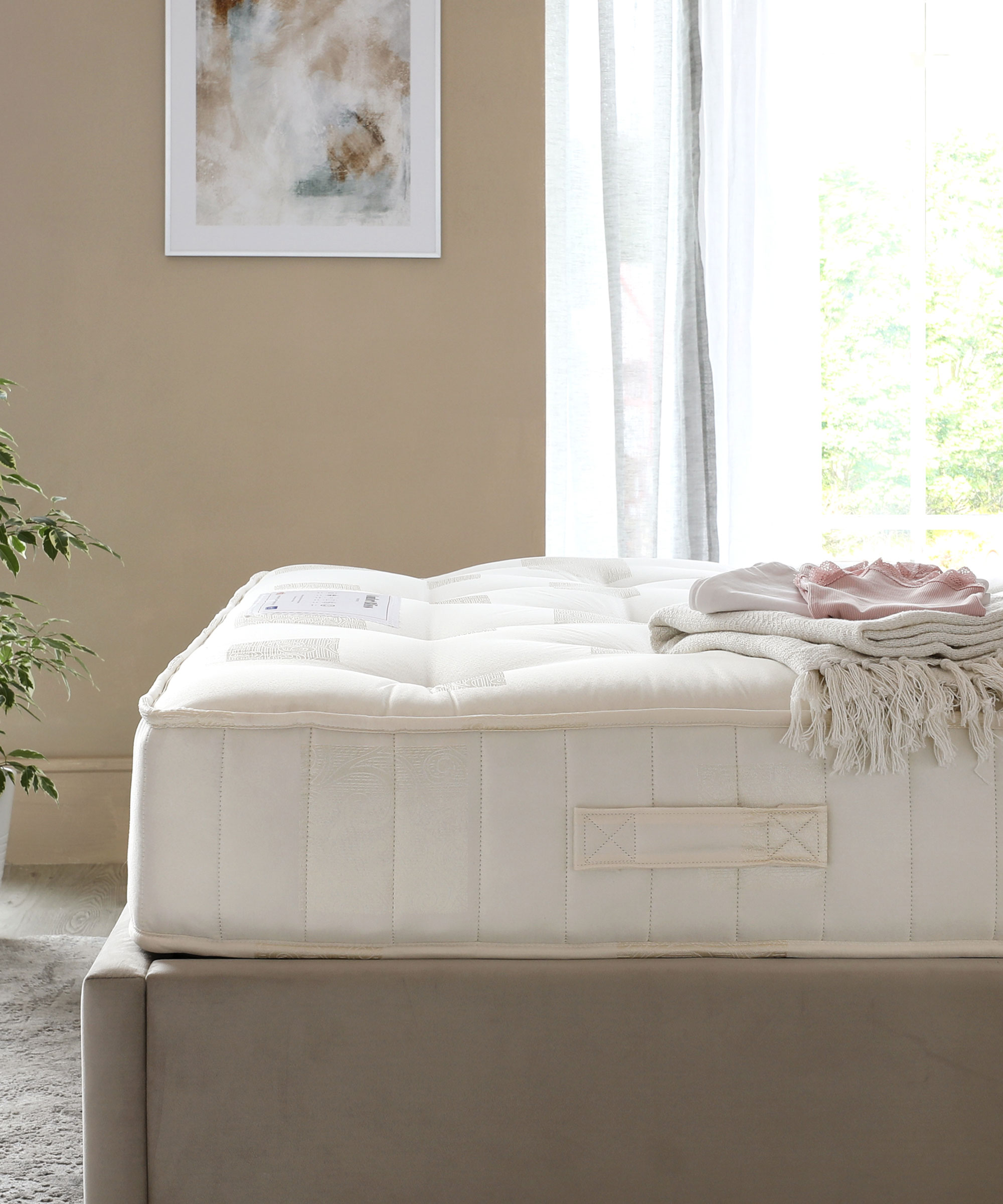
- Memory foam: made from polyurethane or viscoelastic foam, which molds to a sleeper’s body. The average memory foam mattress will only last for six to eight years as it doesn’t remain supportive – especially of sleepers weighing over 250lb.
- Gel: made from viscoelastic foam mixed with gel beads. You might find gel in the layers of an all-foam mattress or infused into the top layer of a hybrid mattress. Most gel mattresses are medium firmness. Since gel easily forms impressions, it soon starts to sag. You might only get six or eight years of good use out of a gel mattress before you need to replace it.
- Latex: made from the sap of rubber trees and feature in our selection of the best organic mattress choices. Latex is responsive, made to bear a sleeper’s weight and spring back into shape. Latex is also durable for this reason, and a latex mattress can last 20 years. Many of the best luxury mattresses incorporate latex. Note that there are also synthetic petroleum-derived latex mattresses, which aren’t as supportive, nor organic.
- Innerspring: There are two types of innerspring mattresses: open coil, with interconnected springs, and pocket sprung, with individual wire springs inside fabric sleeves – the pockets – so that they move independently of one another. Open coils transfer more motion and wear more quickly; you might need to replace one of these after five years. Pocket springs reduce motion transfer between sharers and are more durable, lasting eight to 10 years.
- Hybrid: A hybrid mattress is a composite of a classic innerspring and modern memory foam. It provides the comfort of thick foam, with the enhanced airflow and support of innerspring coils. With a pocket-sprung system, a hybrid mattress can also last around eight to 10 years.
- Futon: Traditionally a foldable bed that's typically filled with layered cotton, then wrapped in fabric. It tends to be around two or three inches thick. The Western-style futon is closer to a traditional mattress: it's thicker, filled with foam and springs, and placed on a wood or metal frame that adjusts from a bed to a sofa. Better for occasional or short-term use, durability depends on how a futon is made and material quality but could be five to 10 years.
- Orthopedic: This is a marketing term rather than a mattress type. However, a bed with this label is designed to be supportive, and you might find springs and foam arranged in ergonomic zones to offer targeted support to each area of your body. Orthopedic support looks different for every sleeper, and, ideally, you're looking for an orthopedic mattress that has adjustable firmness for custom support.
- Plush: another word for a mattress that’s soft rather than a mattress type.
Which mattress type is best?
Find the type of mattress that best fits your needs in our quick guide.
Best for those with allergies: natural latex (except if you have a latex allergy) or memory foam
Best for chronic pain sufferers: pocket sprung
Best for couples: pocket sprung or hybrid
Best for eco-friendliness: natural latex
Best for hot sleepers: latex or gel or innerspring
Materials and certifications to look for
The materials and certifications can help guide you to a mattress type that offers the quality you want.
CertiPUR-US is a certification program that ensures polyurethane foams are free from formaldehyde, ozone depleters, phthalates, heavy metals, and screened for chemicals that are harmful to human health and have low VOC emissions for better indoor air quality.
GOLS To avoid latex that is synthetic and identify that it is made from the sap of organic rubber trees, look for Global Organic Latex Standard (GOLS) certified organic latex.
GOTS (Global Organic Textile Standard) is an independent accreditation that proves that the textiles inside a mattress are made from organic materials.
GREENGUARD Gold is the industry standard for emissions testing and ensures low emissions of VOCs from your mattress to minimize indoor air pollution, in line with testing requirements set by the California Department of Public Health.
Phase-change material (PCM) is a substance that absorbs or releases heat as it changes state. This might look like gel beads or cooling fibers and helps to maintain a stable temperature.
3. Comparing mattress types
Choosing a mattress to suit you might see you lining up and weighing up the different types against one another. These are our verdicts on the different types most commonly put head-to-head.
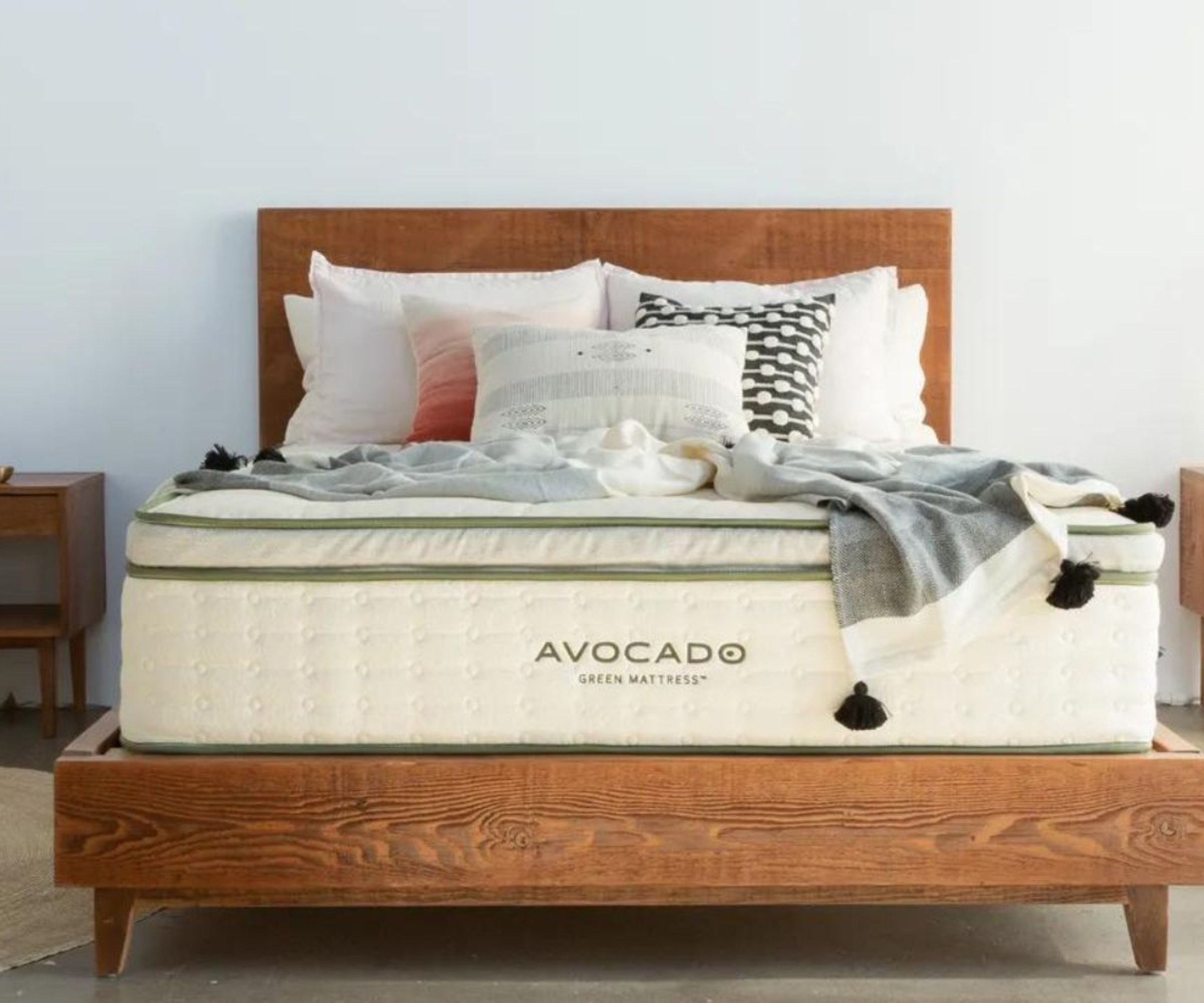
Latex vs memory foam mattress
Latex is breathable, durable, and sustainable, so it's a great option for hot sleepers and eco-conscious shoppers. It’s also suitable whether you lie on your front, back, or side. Latex is also super responsive: it's designed to bear your weight then spring back into shape as soon as you get out of bed in the morning.
On the downside, latex is expensive. The average latex mattress will set you back a few thousand dollars. Also, Some people don’t like how a latex mattress feels, which is firmer than memory foam. It’s also heavy, so lifting and rotating them can be tricky.
Memory foam feels soft and supportive, filled with thick layers of polyurethane or viscoelastic foam. Memory foam contours to your curves, responding to your body's unique shape, size, and temperature. Memory foam is made to bear your weight and take the pressure off your joints: in that way, it's a lot like latex.
Cons of memory foam include the heat retention that can make it uncomfortable for some people. It isn’t especially durable either, lasting five to seven years.
Our verdict: If you're a side sleeper, a light sleeper, or you're buying on a budget, we suggest you invest in a memory foam mattress. If you can spare the cash, or you can save until you really need a new bed, then we'd recommend a latex mattress. Breathable and durable, latex is a far more sustainable option that should suit most sleepers.
Memory foam vs innerspring mattress
Memory foam can offer great motion isolation, making it an option for couples and light sleepers. It is designed to cushion your joints, contouring to the shape of your body to help you achieve a feeling of weightlessness, and therefore offering optimal pressure relief. Out of all the mattress types, memory foam offers the best pressure relief.
Disadvantages include that the density of the foam can lead to a buildup of heat and moisture that makes for uncomfortable sleep. It also lacks edge support if you want sit on the side to tie shoelaces or get dressed in the morning. If you struggle with mobility, you might appreciate a little extra help getting into and out of bed in the morning.
Innerspring mattresses feel firm and bouncy. If you sleep on your back or stomach, you'll likely prefer an innerspring mattress. Every time you move around in bed, innerspring coils will compress and depress beneath your body weight, pushing air through the mattress to dissipate heat, so one of these is better for a hot sleeper
An innerspring mattress is often an eco-friendlier option. Narrow your search to innersprings that incorporate organic wool and cotton in their comfort layers and forgo synthetic fire retardants in favor of natural alternatives.
Motion transfer can be a downside; look for a pocket-sprung innerspring mattress to avoid this. In terms of comfort, we think a memory foam mattress has the edge.
Our verdict: If you're in need of pressure relief, or prefer a softer surface, try a memory foam mattress. We've found the best affordable mattresses on the market if budget is a concern. If you sleep on your back or stomach, or you'd appreciate some sturdy support, we recommend an innerspring mattress. It can also be superior in terms of durability, and you could get as much as a decade's worth of good use out of your innerspring if you take care of it.
Memory foam vs gel memory foam
Memory foam mattresses typically feature three layers of foam. Support foam feels solid and sticky for body contouring; comfort foam delivers the soft, sinking feeling of memory foam; and transition foam reduces friction between the layers. The best memory foam mattress is more affordable than a gel bed.
Disadvantages include its heat retention and that it’s neither the most durable nor the most sustainable option.
Gel memory foam feels much the same: springy and responsive. The average gel mattress is founded on support foam, layered with transition foam, and topped with comfort foam, which is infused with cooling gel beads and it’s thus much cooler than traditional memory foam.
Gel beads give a bed a bit more bounce than memory foam alone, which makes it that much easier to get in and out of bed and change position overnight.
The cons include that a gel memory foam mattress is marginally more expensive than a traditional memory foam mattress. And it is even less durable than traditional memory foam. You might only get five good years of use out of a gel bed, which accumulates indentations and impressions.
Our verdict: If you sleep hot, then you should go for a gel memory foam mattress. If you don't, and you're working with a tighter budget, then stick to a traditional memory foam mattress. That way, you'll get near-perfect pressure relief and even weight distribution throughout the mattress.
Memory foam vs hybrid vs latex mattress
Memory foam is soft and supportive thanks to its thick layers of polyurethane or viscoelastic foam. Other pros are the effective motion isolation, so co-sleepers don’t disturb one another, and the pressure relief it offers. Typically, memory foam is more affordable than a hybrid or latex mattress.
It’s biggest negative point is that it’s not breathable and it isn’t very durable.
Hybrid mattresses are springy and supportive, combining all the best bits of a memory foam mattress with a classic innerspring. The best hybrid mattress should suit all sorts of sleepers, whether they lie on their front, back, or sides.
Some motion transfer does occur with a hybrid because of its springs, and hybrid mattresses are more expensive: at least $1,000 for a queen.
Latex is breathable, and organic versions are eco-friendly. It bears a sleeper’s weight and molds to their body. However, latex also feels responsive. It is very durable, lasting as long as 20 years.
Points against latex are its high cost and its heaviness.
Our verdict: If you share a bed or you're buying on a budget, shop for a memory foam mattress. If you're a hot sleeper, or you prefer a slightly firmer surface, you'll be better off with a hybrid mattress. Natural latex is also breathable and good for those with allergies plus it’s sustainable and the winner when it comes to durability, but it is an investment.
4. Which mattress size should I buy?
Buying the right size mattress is crucial to your comfort and sleep quality. ‘The size of mattress you need is determined by the size and number of people who sleep on the mattress, the size of bedroom, and the furnishings used in your bedroom,’ explains Dr. Leona Hawks, home furnishings and housing specialist at Utah State University Extension.
In terms of dimensions? ‘Your new mattress should be at least six inches longer than the tallest person sleeping on the bed. The width of the bed should allow space for your pillow and enough room to put your elbows in the back of your head without touching your partner or going beyond the edge of the mattress,’ says Dr. Hawks.
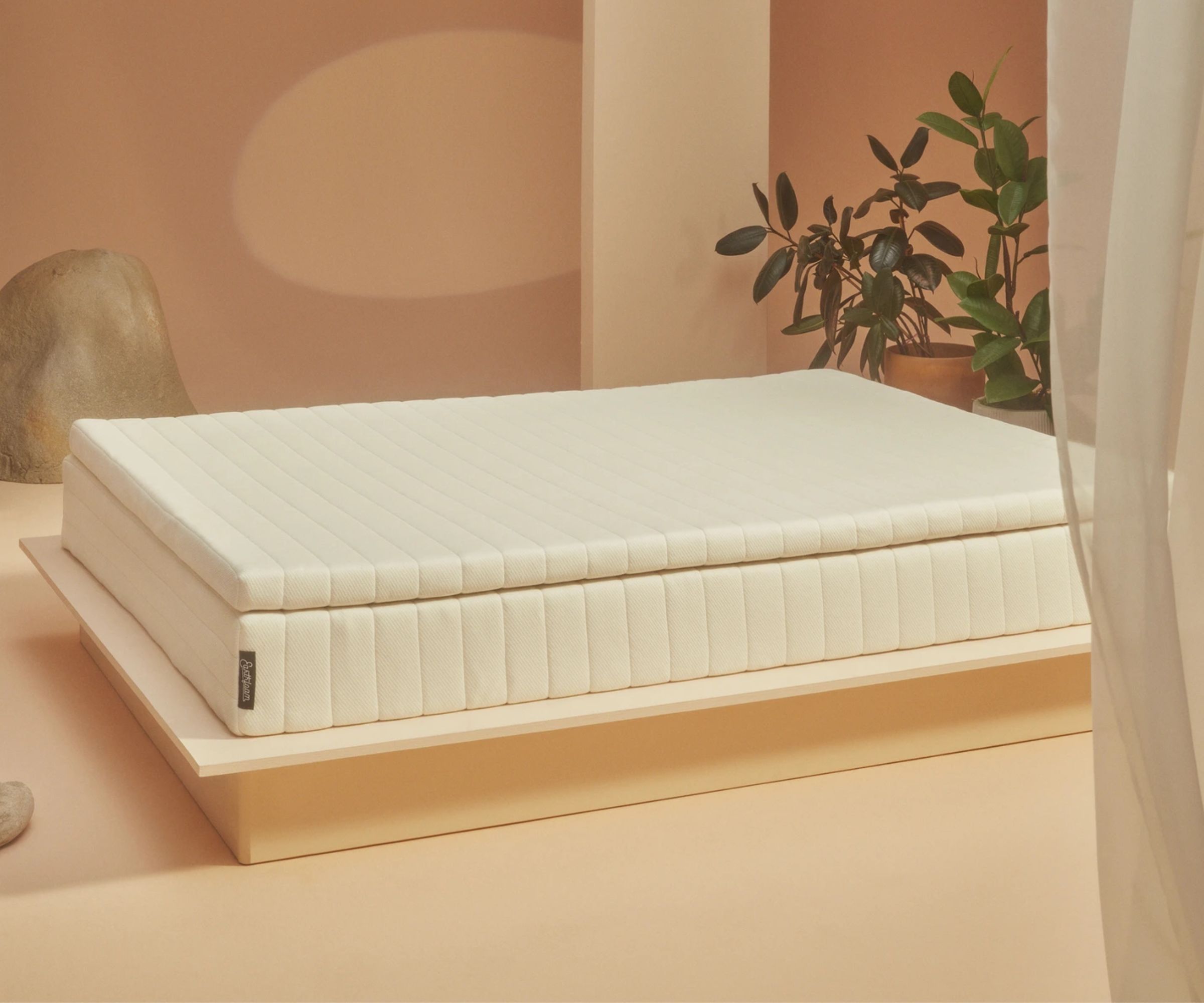
Mattress size chart
These are the standard sizes, so be sure to check the individual brand’s specification when buying:
Standard mattress sizes
Twin 38 x 75 inches
Twin XL 38 by 80 inches
Full 54 x 75 inches
Queen 60 x 80 inches
King 76 x 80 inches
California king 72 x 84 inches
Kids’ mattress sizes
Crib 28 x 52 inches
Small single 30 x 75 inches
Queen vs full mattress
Queen mattresses provide more space to sprawl than full. They will take up more of the bedroom floor area, and they’re often more expensive.
Best for: Couples, anyone with a bigger bedroom, and sleepers who toss and turn.
Full mattresses take up less floor space and are typically cheaper than queen sized, but sleeping in one of these can feel restrictive.
Best for: Solo sleepers, anyone with a smaller bedroom, teenagers.
King vs California king mattress
King mattresses provide more space from side to side, allowing sleepers to spread out, but they’re not as long, so less suitable for tall individuals and narrower rooms. However, overall they offer more space (6,080 square inches).
Best for: Couples and principal bedrooms.
California king mattresses are longer and narrower with a total area of 6,048 square inches. They’re a little more costly and less readily available.
Best for: Taller individuals.
Queen vs king mattress
Queen mattresses require less bedroom floor space and are often cheaper, although for some people they can feel a little cramped.
Best for: Solo sleepers; couples who like to sleep close; anyone with a smaller bedroom.
King mattresses offer more space to spread out, but accordingly need more floor space to avoid overfilling a bedroom. They’re more expensive, too.
Best for: Couples; taller, broader sleepers; anyone who suffers from chronic pain or struggles with mobility.
5. What to budget for a mattress
Research what you might actually pay for different mattress ranges, and what you’ll get in terms of the type, durability, warranty, and trial period available. Here's our guide to help you budget accordingly:
Budget mattress: Usually innerspring or foam. Best suited for temporary use or as a mattress for a guest room. Average warranty 5-10 years. Average trial period 30-100 nights. Average price $500. Make sure the quality matches the cost. Should strike the right balance between comfort and support, and be made from durable materials that won't wear out within the first few years of purchase.
Mid-range mattress: Higher quality foam, innerspring or hybrid. For daily use. Average warranty 10-15 years. Average trial period 100-120 nights. Average price $1,000. It could cost anywhere between $800 and $1,500, but it's worth saving for, thanks to features like enhanced breathability and ergonomic support, to suit every sort of sleeper.
Luxury mattress: Premium materials, including natural latex and high-density memory foam. Offering cooling and comfort day-to-day. Average warranty 10-25 years. Average trial period 100-365 nights. Average price $1,800 and up. Filling should be complemented by other mattress materials such as organic wool, cotton, and cashmere.
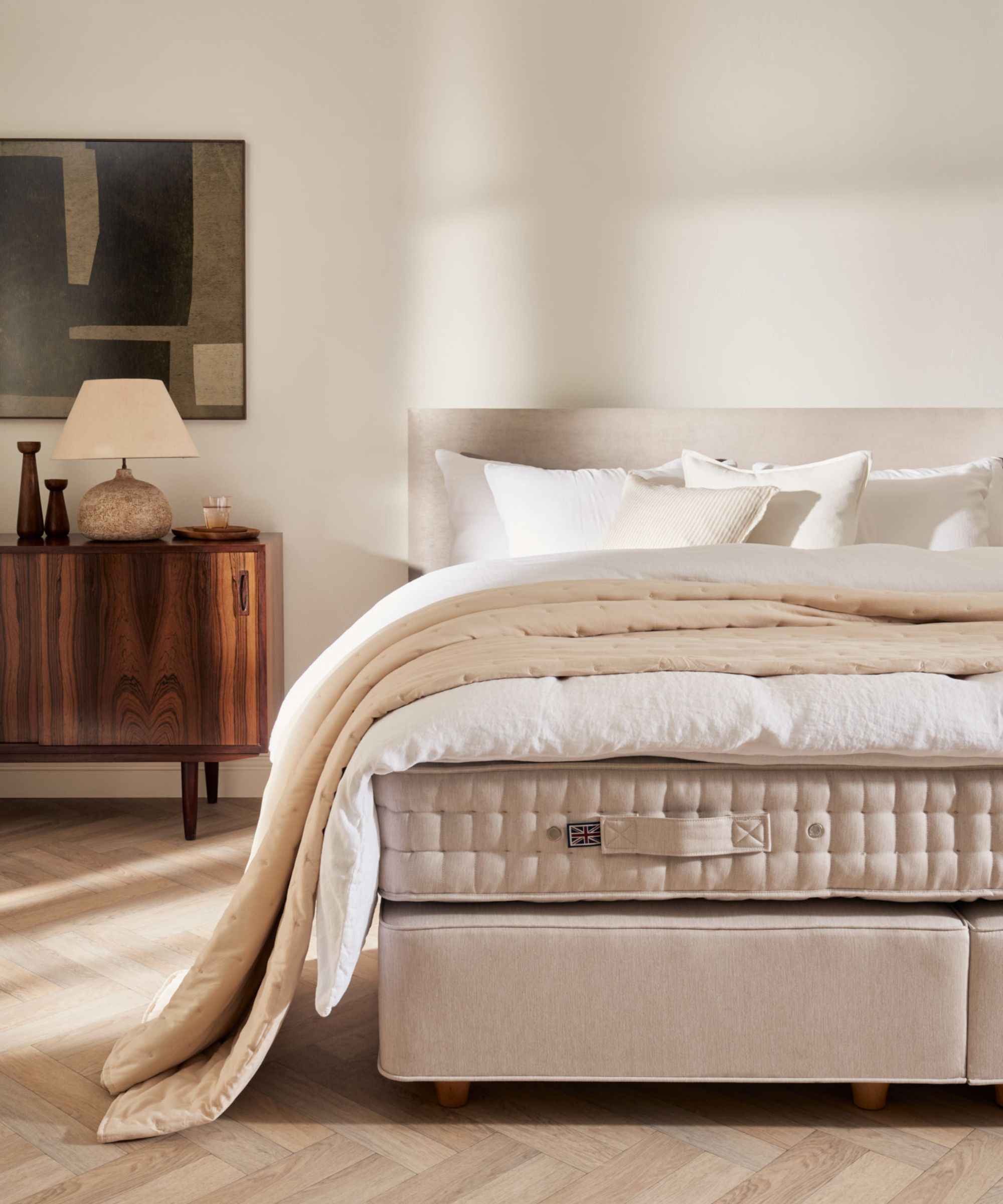
6. When is the best time to buy a mattress?
If you want to spend less on a mattress, the biggest mattress sales tend to coincide with public holidays. We’ve seen the deepest mattress discounts on Labor Day, Thanksgiving Day, Presidents' Day and Memorial Day.
Outside public holidays, if you already know which mattress will suit, then you should watch for site-specific sales. These deals might not be quite as deep as the ones you'll see around federal holidays, but you could still save a few hundred dollars.
It’s worth downloading a price tracker: camelcamelcamel is a good one for Amazon. You're looking for a browser extension to monitor mattress prices throughout the year, so that you can see when they rise and fall, and work out the best time to buy a mattress from that site.
You should also think in terms of time of year. If you're buying on a budget, shopping expert David Bakke says that the best time to buy a mattress is in the first months of the new year. 'The early springtime is when new mattresses hit the market,' David explains, 'which means that major mattress stores and independent retailers alike will slash their prices to shift last season's stock.'
Black Friday is another good opportunity, and we‘ve found a lot of great value at the specialist sleep stores then.
As for in-person shopping, David suggests, 'Although it might seem a little weird to shop for a mattress on New Year's Eve, remember this: the retailer or salesperson might be trying to hit their individual or store quota for the month, quarter, or year. You could get a steal if you negotiate effectively'.

David has worked as a personal financial analyst for 18 years, offering assistance and advice to customers and consumers on how to save money on big-ticket items, such as mattresses.
7. Consider sleep trials
A mattress sleep trial is a period of time, set by the mattress manufacturer, in which you get to test your mattress in your home before you commit to your purchase. It is one of the best things to come out of online mattress shopping. In the absence of an in-store showroom, you test the mattress at home over a longer period of time.
We think that 100 nights is just enough time to test your bed through several seasons, paying special attention to its thermoregulation. If you're an indecisive shopper, and you know you need longer to make up your mind, then look for a longer mattress sleep trial. The best brands offer up to 365-night trial periods.
Be aware that you aren’t trying before you buy; you'll need to pay upfront for your mattress before the sleep trial begins. You'll only receive a refund if you return your mattress within the window specified by the manufacturer. Make sure you read the terms and conditions first: for example, some brands will only accept your return if you've covered your bed with a mattress protector.
Not all mattress brands refund 100 per cent of your money at the end of a mattress sleep trial. You might, for example, have to pay a shipping fee. Some mattress brands offer free perks, such as sheets, pillows, and bed frames, when you buy their mattress. These freebies might not fall under the provisions of your mattress sleep trial. That means the brand could choose to deduct the retail price of those products from your return.
Consider the environmental impact. When you return your mattress to the manufacturer, there's a high probability that it will end up in landfill, where a single mattress takes thousands of years to biodegrade. If you're keen to shop sustainably, but you still want to take advantage of a mattress sleep trial, then look for brands that donate or recycle old mattresses.
8. Be aware of warranties
A mattress warranty is a written guarantee extended by the manufacturer to the purchaser to repair or replace your mattress if necessary within a specified period of time. Getting a good mattress warranty protects you against material defects that you can't see from the product listing and that you might not even feel in a mattress showroom.
The length of the mattress warranty and the extent of its coverage will vary from brand to brand. Some warranties last five years, whereas others last 20; some warranties only cover particular manufacturing defects, while others are for all sorts of mattress flaws. A warranty might cover issues such as significant, premature sagging, broken coils, and faulty stitching.,
Andy Bloom, owner of Home Mattress Center explains the types of warranty:
A full replacement warranty covers the cost of replacing a defective mattress with a new one and typically covers defects in materials or workmanship.
A prorated warranty, meanwhile, provides coverage for a specified period of time, after which the value of the warranty decreases.
A limited warranty covers only specific components or issues within the mattress, such as broken coils or foam deterioration. Check the exact terms and conditions.
An extended warranty offers the most comprehensive protection, and is available from a few manufacturers. It extends the coverage period beyond the standard warranty duration.
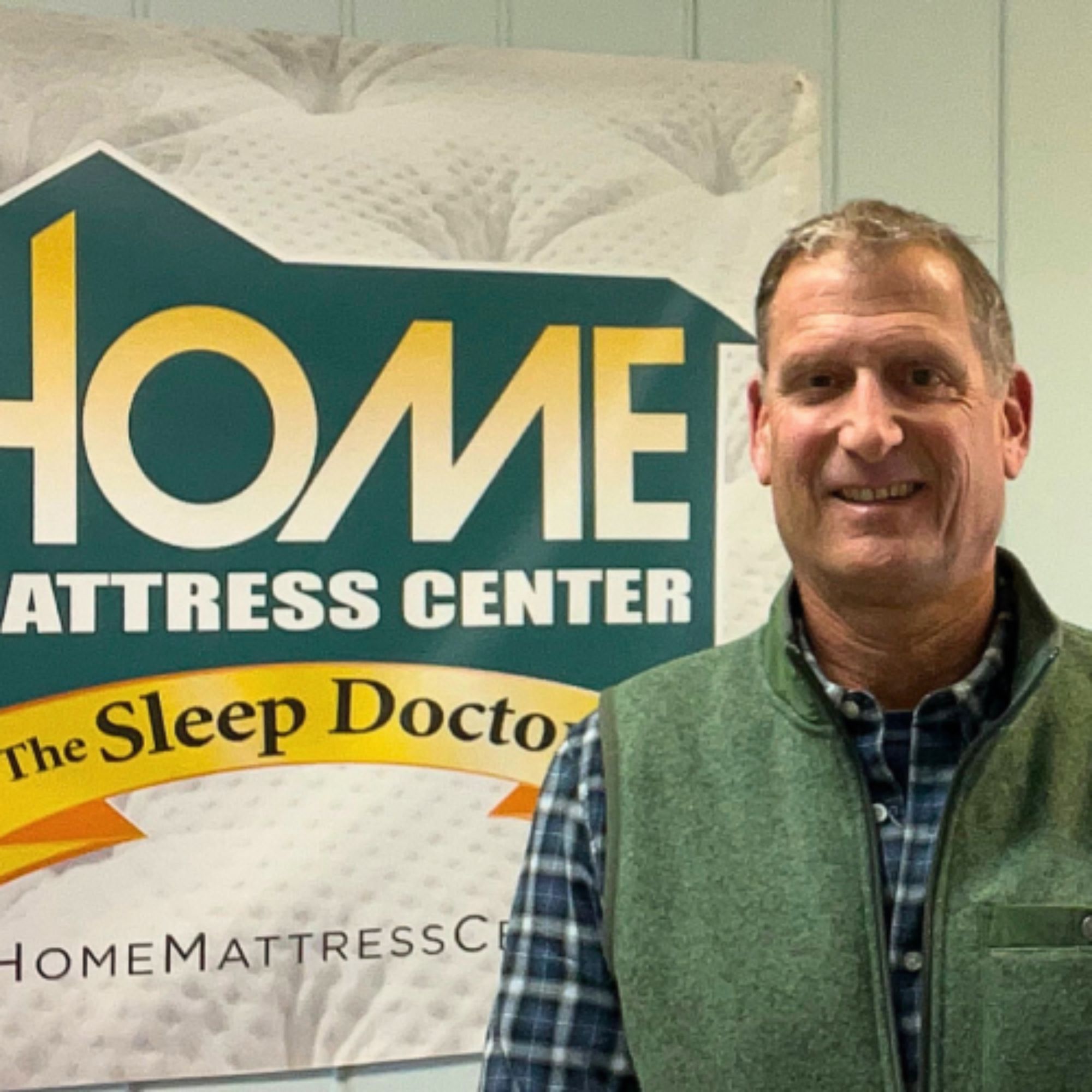
Along with his wife, Katie, Andy owns and operates the Home Mattress Center store and showroom. Andy has sold thousands of beds over the last 30 years in the mattress industry.
9. Delivery, setup and disposal
Mattress delivery services bring your purchase to your home, but you may have options as to what happens after that.
A boxed mattress – no surprise – arrives in a box, wrapped in plastic. You'll need to lift the box and carry it into the room of your choice, and it could be heavy. You could ask someone to help you carry your box mattress into your bedroom or opt for a white glove delivery service, if available, which includes setup and packaging removal.
Traditional mattresses may also be delivered to the doorstep or to a room of your choice with setup, and packaging removal. The latter may cost extra so be sure about the service offered and what you’ll pay when buying.
It is worth opting for removal of your old mattress with the delivery of the new one if this is available. In some states, there is a recycling program established by law and operated by nonprofit organization, the Mattress Recycling Council. If you live in California, Connecticut, Rhode Island, or Oregon, visit Bye Bye Mattress. Outside of these states, take a look at Earth 911. Otherwise, check your options via municipal offices. A mattress in good enough condition could be donated, but you’ll need to check the charity, organization or shelter’s stipulations.
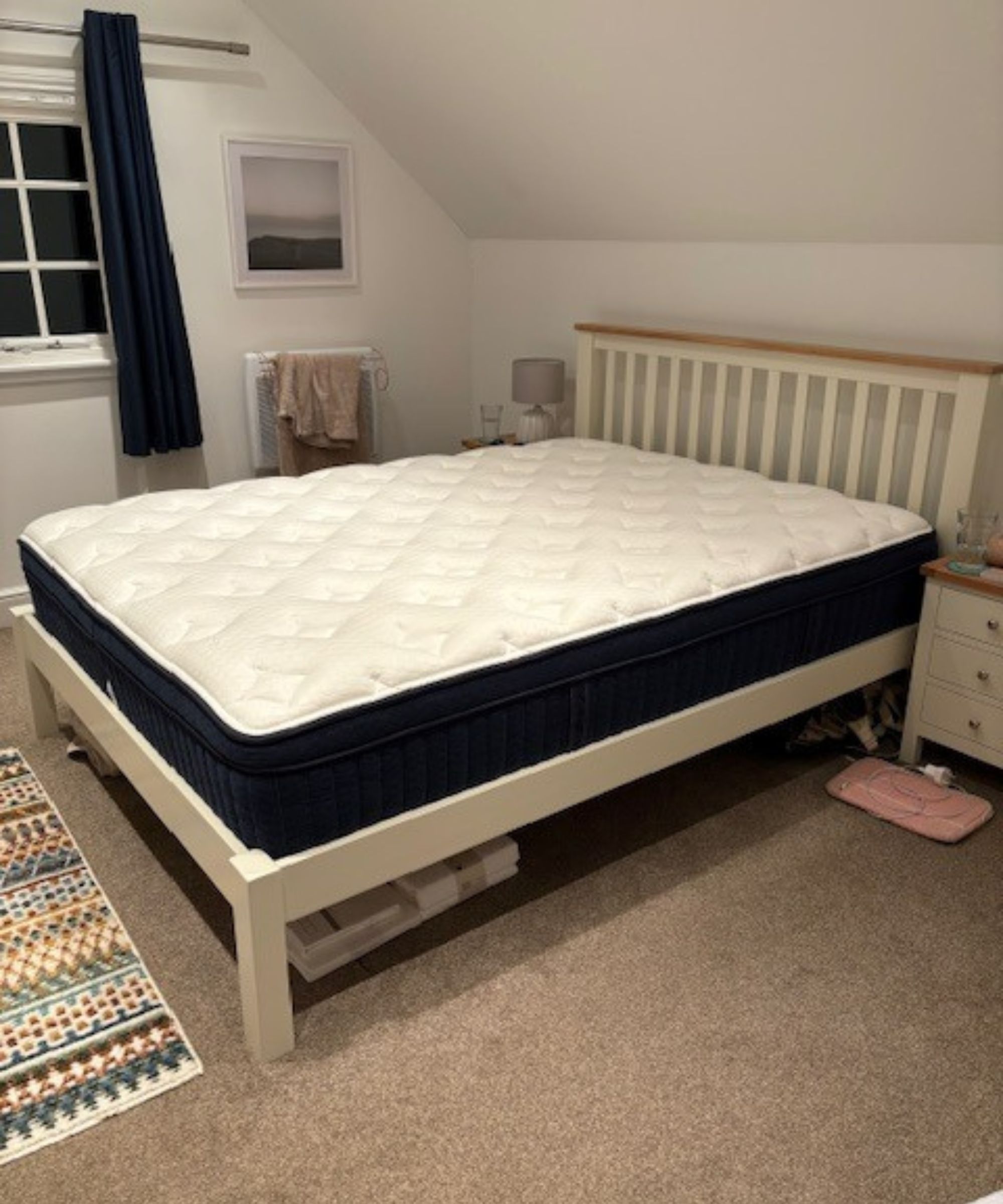
Mattress jargon buster
We get it, buying a mattress can be majorly confusing. So, to break down to bedding buzzwords, we've compiled a glossary of all the mattress terminology we encounter on a daily basis, arranged A to Z for ease of access. From all-foam to zoned support, here are all the words you need to know before you shop.
- Adjustable base compatibility: the extent to which a mattress can bend and flex on an adjustable bed. Especially important if you struggle with mobility, circulatory issues, or snoring.
- All-foam mattress: a mattress made entirely from polyurethane foam, without springs. Often used interchangeably (but incorrectly) with the term 'memory foam mattress'. Here's the difference: every memory foam mattress is an all-foam mattress, but not every all-foam mattress is a memory foam mattress.
- Base layer: the thick lower layer of a mattress that bears your weight. It might be made from metal springs, dense foam, or Dunlop latex. Also known as the support core.
- Bed-in-a-box: a mattress that has been plastic-wrapped, vacuum-sealed, compressed, and packaged in a cardboard box for easy shipping. Also known as a box mattress, a bed-in-a-box could be made from all-foam, latex, or a hybrid of different materials. The best box mattress offers comfort and convenience on the cheap.
- Body contouring: the extent to which a mattress molds to the shape of your body to provide comfort, support, and pressure relief. Can help to improve circulation and maintain a neutral spine position.
- Box spring: a wooden or metal box, filled with metal coils and wrapped in fabric. Works to support your mattress, enhance air flow, and minimize motion transfer. Be sure to check your terms of purchase before you buy a box spring: using one could invalidate your mattress warranty.
- CertiPUR-US: a certification program that ensures polyurethane foams are free from formaldehyde, ozone depleters, phthalates, heavy metals, and screened for chemicals that are harmful to human health. CertiPUR-US ensures low VOC emissions for indoor air quality.
- Coil count: the total number of springs in a mattress. A useful indicator of how an innerspring or hybrid mattress might feel. More coils usually means a firmer mattress.
- Coil gauge: measures the thickness of the wire. The thicker the wire, the firmer and more durable the coil. You tend to find thicker coils in the base layer and thinner, more flexible coils in the comfort layer.
- Comfort layer: the top layer of a mattress that sits above the base layer and beneath the mattress cover. The major indicator of how firm or soft your mattress might feel and how much you might sink into the surface. Commonly made from polyurethane or latex foam.
- Density: measures mass per volume. You'll read about high-density or low-density foam, measured in pounds per cubic foot (PCF). Denser foam feels firmer. A denser mattress is heavier, and you might struggle to flip or rotate it.
- Durability: how well a mattress withstands regular wear and tear. The average lifespan of a mattress is between 7 and 10 years, but some mattress types are more durable than others. How much you weigh and how well you care for your mattress also informs its durability.
- Ease of movement: how easy it is to move around on a mattress. Especially important if you struggle with mobility or you tend to switch sleep positions in the night.
- Edge support: how well the edges of a mattress bear your weight. Especially important if you like to sit or sleep on the side of the mattress or if you need help getting into and out of bed.
- Euro top: a type of pillow top. An additional layer of cushioning, sewn into the mattress cover so it stays flush with the edges of the mattress.
- Fire barrier: a chemical treatment or fabric casing that creates a protective barrier around the mattress to resist ignition and limit the spread of fire. Also known as a flame retardant. Some manufacturers use natural fire barriers, such as wool, where others use harmful chemicals or fiberglass.
- Firmness: how hard or soft the mattress feels. Often rated on a scale of 1 to 10, where 1 is super-soft and 10 is ultra-supportive, or else categorized as soft, medium-soft, medium, medium-firm, or firm, but there is no industry-wide standard. The best mattress firmness varies from sleeper to sleeper.
- Gel infusion: a gel mattress is made from polyurethane foam and filled with gel beads, which absorb your body heat. Thermal energy is transferred from one bead to another, away from the surface of the mattress, helping to keep you cool.
- Global Organic Latex Standard (GOLS): an independent accreditation that proves a latex product is natural, rather than synthetic, and made from the sap of organic rubber trees. GOLS ensures traceability from the rubber plantation to your retailer and enforces social and environmental regulations.
- Global Organic Textile Standard (GOTS): an independent accreditation that proves the textiles inside a mattress are made from organic material. GOTS is applicable to interior batting fibers or mattress covers. Does not cover foam or coils.
- GREENGUARD Gold: the industry standard for emissions testing. GREENGUARD Gold ensures low emissions of VOCs from your mattress to minimize indoor air pollution, in line with testing requirements set by the California Department of Public Health.
- Hybrid mattress: combines a spring base layer with a foam comfort layer. A hybrid mattress marries the support and breathability of an innerspring with the comfort and cushioning of foam.
- Innerspring mattress: comprises a spring base layer, wrapped in a quilted cover with some batting inside (perhaps cotton, wool, or cashmere). An innerspring mattress is the traditional choice, accounting for as much as 92% of mattress sales in the 1970s and 80s. Supportive and breathable, with a bit of bounce, but might feel too firm for some.
- Latex mattress: filled with latex foam. There are two methods of making latex. Dunlop latex is produced via vulcanization, creating solid and supportive foam for base layers. Talalay latex is produced via vacuum sealing and freezing, creating soft and springy foam for comfort layers. A latex mattress might feature either Dunlop or Talalay latex or a mixture of the two.
- Mattress protector: a thin layer of fabric that wraps around your mattress to wick away sweat, spills, and stains and guard against dust, dirt, and dander. I've ranked and reviewed 9 of the best mattress protectors to keep your bed and body clean.
- Mattress topper: a thick layer of foam wrapped in a fabric cover, intended to change the look or feel of your mattress. May feature corner straps for a secure fit or a grip pad on the underside of the topper. I've ranked and reviewed 6 of the best mattress toppers for comfort, cooling, and cost.
- Memory foam mattress: made from viscoelastic foam, a variant of polyurethane foam. Commonly used as a comfort layer. A memory foam mattress offers excellent pressure relief and motion isolation, but it might not be as breathable as a latex, innerspring, or hybrid mattress.
- Moisture wicking: how well the materials within the mattress cover can absorb and drain moisture to keep your mattress fresh and dry. Especially important for hot sleepers and anyone who struggles with night sweats.
- Motion isolation: the extent to which motion can be felt on either side of the mattress. Especially important if you're a light sleeper or you share a bed with a pet or partner.
- Off-gassing: the process by which a new mattress emits VOCs into the air. Mattress off-gassing is most common in all-foam mattresses and box mattresses. The smell is usually non-toxic, but it is unpleasant.
- Phase-change material (PCM): a substance that absorbs or releases heat as it changes state. Might look like gel beads or cooling fibers. Helps to maintain a stable temperature.
- Pillow top: an additional comfort layer sewn on top of the mattress. Might be filled with foam, down, wool, or fiberfill. Makes a mattress feel softer.
- Pocketed coil: a metal coil that is wrapped in fabric in order to isolate it from the rest of the coils in the mattress. Means that each coil moves individually, minimizing motion transfer. A pocket sprung mattress is a good choice for light sleepers and anyone who shares a bed.
- Polyurethane foam: a petroleum-based synthetic material. Often found in base layers and comfort layers of all-foam and memory foam mattresses. Varies in firmness and density.
- Pressure relief: how well a mattress cushions your body to take the weight off your joints. Especially important for side sleepers. As a general rule, memory foam offers the best pressure relief, then latex and other polyurethanes.
- Reinforced edge: a method of increasing edge support in a mattress. You could use more coils, coils with a thicker gauge, or a border of high-density foam.
- Responsiveness: how well a mattress conforms to the curves of your body and how quickly it springs back into shape once your weight is removed. Especially important for anyone who likes to switch positions in the night or needs a little help getting into and out of bed.
- Sleep position: how you tend to lie on the mattress: on your stomach, back, side, or a combination of the three. Also known as a sleep style, your sleep position informs which mattress type is best for you: for example, I've ranked and reviewed the best mattresses for side sleepers.
- Sleep trial: how many nights you get to test the mattress in your own home before you have to commit to your purchase. Industry standard is around 100 nights, but some brands offer up to 365 nights. A mattress sleep trial is especially important if you're buying a mattress online that you haven't tried in a showroom.
- Spinal alignment: how straight your spine is when you lie on the mattress. The best firm mattress should help to keep your spine straight. How firm or soft you need a mattress to maintain proper spinal alignment depends on your sleep position and your body weight.
- Thermoregulation: the extent to which the materials inside the mattress stay temperature-neutral while you sleep. Also known as temperature regulation. Especially important for hot sleepers, who should shop for the best cooling mattress.
- Transition layer: a layer between the base layer and comfort layer that works to reduce friction inside the mattress, keeping each part in good working condition for longer.
- Volatile Organic Compounds (VOCs): potentially harmful chemicals emitted by a new mattress during the manufacturing process and the unboxing process.
- Warranty: a written agreement between the company and the customer, in which the company promises to repair, replace, or refund a mattress if there are manufacturing defects within a set period of time. The average length of a mattress warranty is somewhere between 7 and 10 years, but some of the best places to buy a mattress offer lifetime warranties.
- White glove delivery: a premium delivery service in which a team of company representatives deliver a new mattress, set it up, and dispose of the packaging. Some brands also offer to remove your old mattress, either for free or for a small extra fee.
- Zoned support: a method of mattress construction in which materials are strategically arranged inside the mattress to offer varying levels of pressure relief to best support particular areas of the body. Often, the middle of the mattress is made firmer to support the hips, while the top third of the mattress is softer to cushion the shoulders. Also known as ergonomic zones.
A mattress is a vital part of the equation that adds up to getting a good night’s sleep and which one fits the bill for you will always be dependent on your individual needs – which may well change over time.
Knowing about the factors that go into mattress suitability – firmness, type, and size – will help you pick out possible options, and then compare them. And it will also help inform how much you want to are or able to spend.
If you're not sure whether your mattress needs replacing yet, but it doesn't feel as effective as it once was, an affordable way to upgrade, without spending out on an expensive new mattress, could be buying one of the best mattress toppers. These offer additional support, cooling, and pressure relief for a range of sleepers, and could buy you a few more years before you having to spend out on an expensive new mattress.

Sarah is a freelance journalist and editor. Previously executive editor of Ideal Home, she’s specialized in interiors, property and gardens for over 20 years, and covers interior design, house design, gardens, and cleaning and organizing a home for Homes & Gardens. She’s written for websites, including Houzz, Channel 4’s flagship website, 4Homes, and Future’s T3; national newspapers, including The Guardian; and magazines including Future’s Country Homes & Interiors, Homebuilding & Renovating, Period Living, and Style at Home, as well as House Beautiful, Good Homes, Grand Designs, Homes & Antiques, LandLove and The English Home among others. It’s no big surprise that she likes to put what she writes about into practice, and is a serial house renovator.